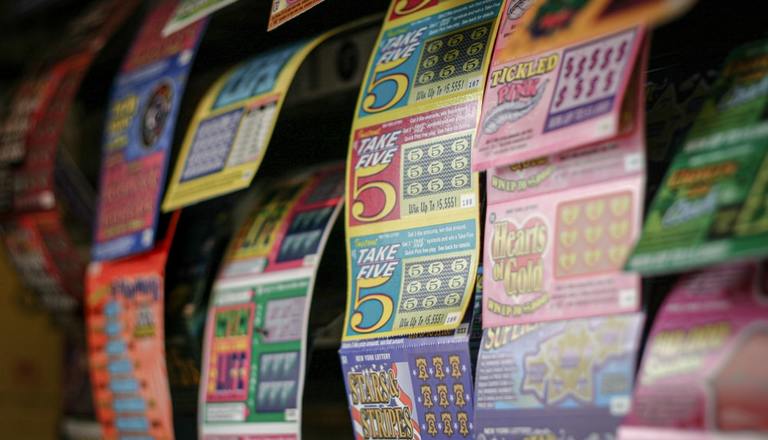
lottery scratchcards are a great way to try for a chance win
Lottery scratchers, or lottery scratch tickets, which line the shelves of convenience stores, gas stations, and other lottery retail outlets, have captured the imaginations of millions worldwide by offering the tantalizing prospect of instant wealth, holding the dreams and aspirations of hopeful players.
The chance of the lottery scratcher!
The concept of lottery scratchers traces back to the 1970s when the first scratch-off ticket was introduced by the Massachusetts State Lottery. This tickets innovation revolutionized the lottery industry, providing a brand new and exciting way to play. Initially, scratchers were simple games, featuring basic designs and limited prizes. However, as their popularity soared over time, lottery authorities began to experiment with various formats, themes, and prize structures, giving rise to a huge diversity of scratch-off games.
Lottery scratch tickets appeal to a fundamental aspect of basic human psychology: the desire for instant gratification. Unlike traditional lottery draws which occur at set intervals, scratch games offer immediate results. This instant feedback loop triggers a surge of dopamine in the brain, creating a high sense of excitement and anticipation. Psychologically, the act of scratching reveals the outcome, turning the game into a tactile experience that heightens the sense of involvement and enjoyment.
Furthermore, scratch tickets capitalize on the principle of variable rewards, a concept rooted in behavioural psychology. By offering a range of prizes, from free tickets to small cash amounts to substantial jackpots, scratchers keep players engaged, fostering a sense of hope and optimism. Even when faced with repeated non-wins, players often persevere, believing that the next ticket could be the one to change their fortunes, a phenomenon known as the "gambler's fallacy."
While lottery scratchers offer the promise of instant wealth, their widespread availability and accessibility raise concerns about their impact on some groups of players, particularly those susceptible to gambling addiction. Studies have shown that scratch-off games can be highly addictive, even more than draw games, leading some individuals into a cycle of compulsive play leading tofinancial hardship. Moreover, the marketing tactics employed by lottery organizations, including colourful imagery and enticing slogans, may contribute to increased participation, especially among vulnerable populations.
Critics argue that lottery scratch tickets disproportionately target low-income communities, exploiting economic disparities for profit. The allure of an instant fix to financial problems, can lure individuals into spending beyond their means, perpetuating a cycle of dependence and debt. In addition, the regressive nature of lottery revenues, whereby a larger proportion of income comes from those least able to afford it, raises ethical questions about the fairness and equity of such lotteries.
Despite the perception of scratch tickets as a game of chance, there are intriguing insights into the mechanics behind prize distribution. Each scratch-off game is carefully designed to ensure a specific payout percentage, known as the return to player (RTP). While the overall odds of winning a prize are usually prominently displayed on each ticket, the distribution of prizes within a game is often less transparent.
Lottery operators employ sophisticated algorithms to determine the placement of winning tickets, strategically distributing them among various retailers and geographic locations. This practice, known as "packaging," aims to maintain player interest by ensuring a steady flow of winners while still adhering to the predetermined RTP. Consequently, winning tickets may be concentrated in specific areas or clusters, leading to the perception of "lucky" stores or regions, however lottery operators do try to spread the winning tickets as widely random as possible.
The timing of ticket sales can influence the availability of prizes, with lottery organizations carefully managing inventory to maintain player engagement. As prizes are won, the total amount of prizes available becomes smaller and the chances of buying any winning ticket also diminish.
For those who love lottery scratchers, navigating the amount of play options can be a little bit daunting. With various games having countless themes, prize structures, and ticket prices to choose from, selecting the right ticket requires careful consideration. Here are some tips for maximizing your chances of success while minimizing the risks:
• Always set a Budget: Determine how much you can afford to spend on scratch-off tickets and severely stick to it. Avoid chasing non-wins or spending more than you can afford.
• Check the Odds: Before purchasing a ticket, review the odds of the game for winning various prizes. While jackpots may be enticing, smaller prizes often offer better odds of success.
• Choose Wisely: Look for games with better player odds and attractive prize structures. Consider factors such as ticket price, top prize amount, and the number of remaining prizes, if the lottery operator provides it.
• Play Responsibly: Enjoy scratch-off games responsibly and in moderation. Remember that gambling should be viewed as entertainment and not a source of income.
Lottery scratchers occupy a unique place in the world of gambling, offering the thrill of instantaneous wins alongside the potential problem of addiction and hardship. By understanding the psychology behind scratch-off games and adopting responsible playing habits, individuals can enjoy the excitement of lottery scratch tickets while mitigating the risks associated with excessive gambling. Ultimately, whether you're a casual player or a dedicated enthusiast, the world of lottery scratch-off tickets offers a fascinating glimpse into the intersection of chance, psychology, and human behaviour.
